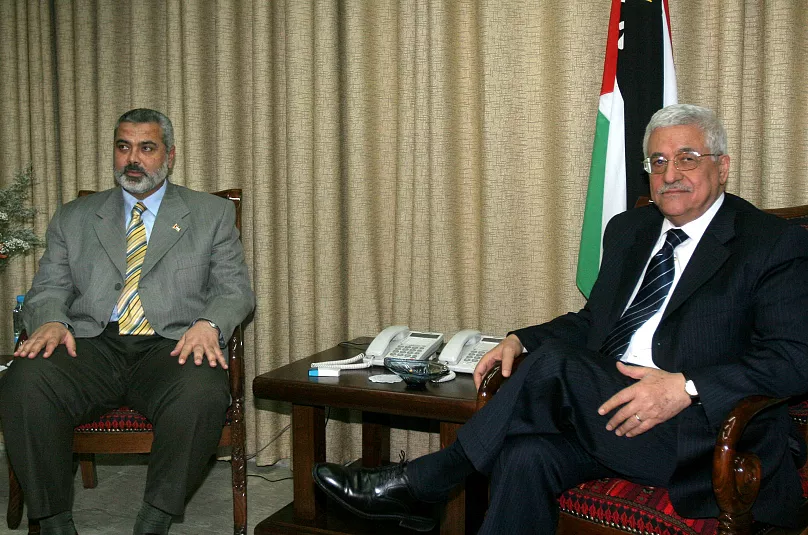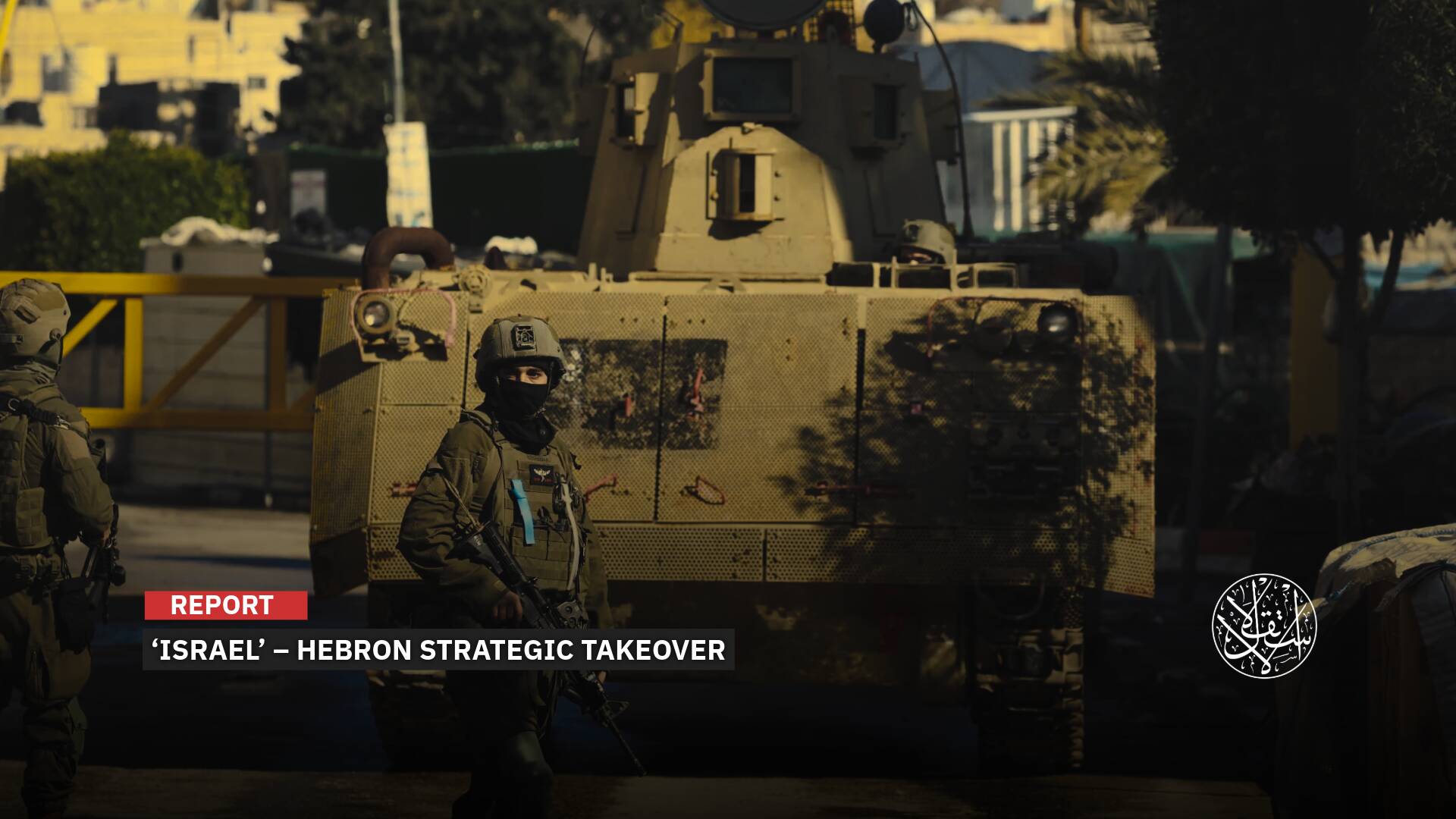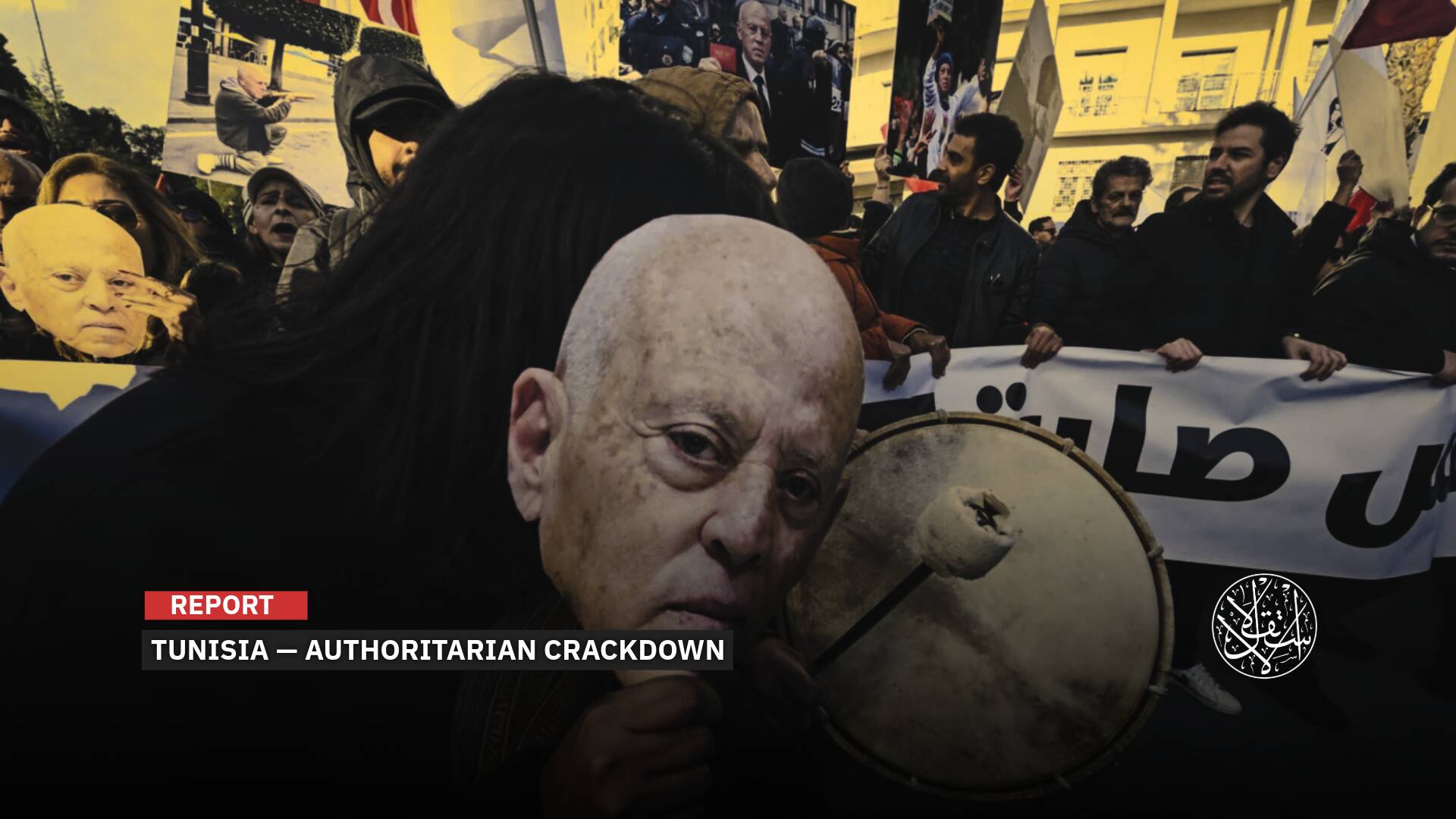Who Was Ismail Haniyeh? Journey from Refugee to Hamas Political Leader, Icon of Resistance

Haniyeh faced a challenging and pivotal task when he was elected as the head of Hamas.
Ismail Haniyeh, the head of the Hamas political bureau, is one of the most renowned and inspirational figures in the history of the Palestinian struggle against the Israeli Occupation.
The man who was assassinated by “Israel” in Iran on July 31, 2024, spent years resisting the Zionists and their state across all fronts—political, military, and diplomatic.
Through his numerous roles and leadership of Hamas and Gaza during the most challenging periods of oppression and aggression, Haniyeh became a symbol of the fight for Palestinian independence and freedom, from the sea to the river—a slogan he upheld until his martyrdom.
Haniyeh in Brief
His full name is Ismail Abdel Salam Ahmed Haniyeh, and he is also known as Abu al-Abd. His family hails from the occupied city of Ashkelon.
Haniyeh’s family fled to Gaza following the 1948 Palestinian Nakba, where he was born and raised.
He was born in al-Shat Refugee Camp in Gaza on January 29, 1963, and began his activist and advocacy career from there.
He started with the Islamic bloc, which was the student arm of the Muslim Brotherhood, and from it emerged the Hamas movement.
Haniyeh studied at the Islamic University of Gaza, graduating in 1987 with a degree in Arabic literature. In 2009, he was also awarded an honorary doctorate from the same institution.
During his university years, his leadership qualities quickly emerged. Between 1983 and 1984, he was a significant member of the university student council and later became its president.
Haniyeh was among the first to join Hamas after its official establishment in 1987.
In 1989, he was imprisoned by Israeli forces for three years.
Disciple of Sheikh Yassin
Haniyeh was among the elite Hamas members exiled to Marj al-Zuhur on the Lebanese-Palestinian border, where he spent a full year in exile in 1992.
It is important to note that the exile to Marj al-Zuhur was a significant phase in Haniyeh's life. Despite its short duration, it deeply impacted his personality, skills, and connection with Hamas's historical leaders, including Abdel Aziz al-Rantisi.

After Haniyeh returned to Gaza, he was appointed Dean of the Islamic University of Gaza. In 1997, he became the head of the office of Sheikh Ahmed Yassin, the founder and spiritual leader of Hamas.
Haniyeh’s position within the movement strengthened significantly as a rising young leader during al-Aqsa Intifada in 2000.
This was due to the absolute trust he had from Sheikh Yassin and the Israeli assassinations of Hamas leaders, which led to the movement's strategy of promoting new ranks.
Haniyeh was a disciple of Sheikh Yassin, and they shared many ties, including their family origins from Ashkelon.
In 1994, Haniyeh told Reuters that Sheikh Yassin was a role model for Palestinian youth, teaching him the love of Islam, sacrifice, and defiance against tyrants and oppressors.
By 2003, Haniyeh had become one of Sheikh Yassin’s closest aides. There is a notable photo of him at Sheikh Yassin’s home in Gaza, holding a phone next to the movement founder’s ear to help him participate in a conversation, as Yassin was nearly paralyzed.

Prime Minister
In December 2005, Haniyeh led the Change and Reform bloc, which won a majority in the second Palestinian legislative elections in 2006.
On February 16, 2006, Hamas nominated him for the position of Prime Minister, and he was officially appointed on February 20 of the same month.
Haniyeh’s first significant clash with “Israel” occurred as Prime Minister on June 30, 2006, when the Israeli government threatened to assassinate him if he did not release the captured Israeli soldier Gilad Shalit.
On June 14, 2007, Palestinian Authority President Mahmoud Abbas dismissed Haniyeh from the position of Prime Minister following what became known as the “military coup.”

Al-Qassam Brigades, the military wing of Hamas, took control of Gaza’s security centers following Haniyeh's inability to govern.
Haniyeh rejected Abbas's decision, deeming it unconstitutional and hasty, asserting that his government would continue its duties and uphold its national responsibilities toward the Palestinian people.
In 2012, when asked by journalists at a conference whether Hamas had abandoned armed struggle, Haniyeh firmly denied it, stating, "Resistance will continue in all its forms—popular, political, diplomatic, and military."
Assassination Attempts
Throughout his 61 years, Haniyeh faced numerous assassination attempts. He was injured in September 2003 during an Israeli airstrike targeting Hamas leaders, including Sheikh Ahmed Yassin.
His convoy was also shot at in Gaza on October 20, 2006, amid clashes between Fatah and Hamas.
Two months later, on December 15, 2006, there was a failed assassination attempt when gunfire targeted his convoy at the Rafah crossing between Egypt and Gaza. One of his bodyguards, Abdul Rahman Nassar, was killed, and five others, including his son Abdul Salam and political advisor Ahmed Yusuf, were injured. Hamas blamed the incident on the Presidential Guard and Fatah’s Security Forces, led by Mohammed Dahlan, who controlled the crossing’s security at the time.
Haniyeh’s house in Gaza was a frequent target of Israeli airstrikes, especially during periods of aggression. On July 28, 2014, during Operation Protective Edge, Israeli planes bombed his home in al-Shat Camp, completely destroying it.

The Most Challenging Phase
On May 6, 2017, Haniyeh faced a new and demanding role when he was elected head of Hamas' political bureau following the movement’s Shura Council elections.
He took on a diplomatic role, moving between global capitals—from Doha to Ankara, Tehran, Cairo, and Amman—to garner international support for the Palestinian cause.
Haniyeh was also instrumental in strengthening Hamas' military capabilities through various means, including enhancing ties with Iran.
The most difficult period in Haniyeh, Gaza, and Palestine's history began on October 7, 2023, when the resistance fighters attacked the Israeli settlements in Operation al-Aqsa Flood.
On that day, Haniyeh told Al Jazeera, "We tell all countries, including our Arab brothers: this entity cannot protect itself against these fighters, it cannot provide you with security or protection, and all normalization and recognition cannot resolve this conflict."
He then undertook intensive efforts to reach a ceasefire agreement for the Gaza Strip, meeting with officials in Turkiye, Egypt, Qatar, and Iran in an attempt to halt the bloodshed caused by the brutal Israeli aggression, which had claimed tens of thousands of Gaza lives over the months.
Resilience and Steadfastness
On April 11, 2024, the first day of Eid al-Adha, Ismail Haniyeh exemplified resilience and steadfastness upon hearing the news of his sons and grandchildren's martyrdom in an Israeli airstrike.
That day, three of Ismail Haniyeh's sons (Hazem, Amir, and Muhammad) and four of his grandchildren (Khaled, Razan, Muna, and Amal) were killed while visiting relatives in al-Shati refugee camp in western Gaza.
Upon receiving the tragic news, Haniyeh stated, "I thank God for this honor of having our three sons and some grandchildren martyred. Through this pain and blood, we forge hope, the future, and freedom for our people, our cause, and our nation."
"My martyr sons achieved the honor of time, place, and ending. They stayed with our people in Gaza and did not leave the Strip. Nearly 60 of my family members have become martyrs, like all Palestinians, with no difference between them."
Haniyeh then continued his tour to visit a group of Gaza's injured in a hospital in Qatar.
Legacy and Wisdom
Ismail Haniyeh left behind a rich legacy of positions and achievements, establishing himself as one of the most exceptional leadership figures in the history of Palestinian resistance. His words and wisdom will be studied by future generations.
Among his memorable quotes are: "What Israel and America failed to impose on the battlefield will not be achieved through political schemes."
“Israel is currently experiencing unprecedented global isolation; we will not recognize it.”
"Our fortresses will not fall, our strongholds will not be breached, and they will not take our positions from us, God’s willing."
Sources
- After 20 years leading Hamas: Ismail Haniyeh follows Yassin and Rantisi (Profile) [Arabic]
- Hamas Political Bureau Chief Ismail Haniyeh Martyred in Israeli Raid on Tehran [Arabic]
- Who was Ismail Haniyeh, the Hamas political chief killed in Iran?
- Ismail Haniyeh: A political and struggle journey crowned with martyrdom [Arabic]
- From Captivity to Exile to Assassination: Who is Ismail Haniyeh? [Arabic]











